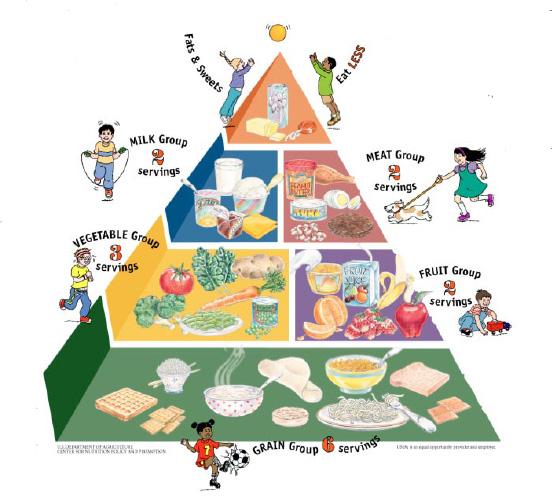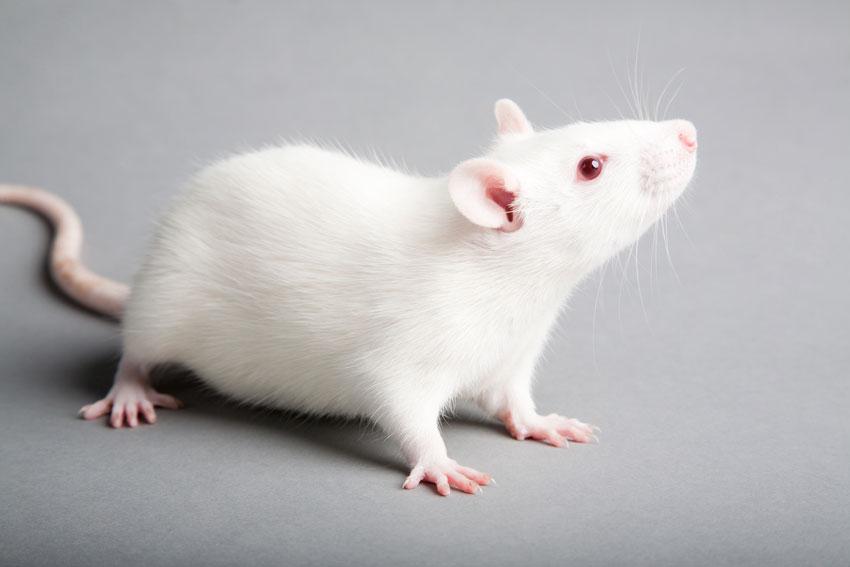Table of Contents
- Understanding the Nutritional Needs of Pet Rats
- Affordable Ingredients for Homemade Rat Food
- Top Commercial Rat Food Brands That Won’t Break the Bank
- Tips for Storing and Preparing Rat Food on a Budget
- Common Mistakes to Avoid When Feeding Your Pet Rat
- Q&A
- In Conclusion


Understanding the Nutritional Needs of Pet Rats
When it comes to maintaining the health and vitality of pet rats, understanding their nutritional needs is essential. These intelligent creatures require a balanced diet that includes a variety of nutrients. While many pet owners may choose commercial rat foods, it’s important to select high-quality options that avoid excessive fillers. Look for ingredients that provide key nutrients, including:
- High-quality protein sources such as chicken, beef, or fish meal
- Fruits and vegetables as natural sources of vitamins and antioxidants
- Whole grains for energy and fiber
- Healthy fats for skin and coat health
Apart from commercial food, incorporating fresh produce is vital for a well-rounded diet. Rats thrive on a mix of greens, fruits, and vegetables, contributing to their hydration and overall well-being. While some foods should be avoided due to toxicity, many regular fruits and veggies can be safely added. Consider including options such as:
| Safe Fruits | Safe Vegetables |
|---|---|
| Apples (without seeds) | Carrots |
| Blueberries | Broccoli |
| Bananas | Bell Peppers |
Beyond diet variety, it’s crucial to provide proper portions. Overfeeding can lead to obesity, which is a common health concern among pet rats, while underfeeding can result in malnutrition. Monitoring their weight and adjusting their intake based on their age, activity level, and overall health plays a pivotal role. Always consult a veterinarian for personalized advice tailored to your pet’s specific needs and preferences. This holistic approach to nutrition can help ensure your furry friend remains healthy and lives a long, fulfilling life.


Affordable Ingredients for Homemade Rat Food
Creating a nutritious diet for your pet rats on a budget is entirely possible with the right ingredients. Focus on incorporating a variety of affordable staples that can provide both energy and essential nutrients. Here are some excellent ingredients to consider:
- Oats: Whole oats are a fantastic base for rat food, offering fiber and a hearty texture. They are inexpensive and easy to find in bulk.
- Rice: Both brown and white rice are great options, providing carbohydrates for energy. Cook them in advance and mix them into your rat’s meals.
- Seeds: Sunflower seeds, pumpkin seeds, and flaxseeds can be found at low prices, adding healthy fats and proteins.
To complement grains and seeds, consider adding fruits and vegetables that won’t break the bank. Fresh produce can often be purchased on sale or in bulk, providing your rats with essential vitamins and hydration. Here are some budget-friendly options:
| Vegetable/Fruit | Nutritional Benefit | Cost-Efficient Option |
|---|---|---|
| Carrot | High in Vitamin A | Buy in bulk or from local farmers |
| Broccoli | Rich in fiber and calcium | Frozen options are often cheaper |
| Apple | Good source of Vitamin C | Look for sales or use bruised fruit |
protein sources shouldn’t be overlooked. Incorporating protein into your rats’ diet is key for their overall growth and vitality. Here are a few affordable protein options to consider:
- Eggs: Hard-boiled eggs are an excellent low-cost source of protein. Offer them occasionally for added nutrition.
- Chicken: Cooked chicken scraps can be a tasty treat if you have leftovers, ensuring none of the food goes to waste.
- Peas: Dried or frozen peas are budget-friendly and provide a solid protein boost.


Top Commercial Rat Food Brands That Won’t Break the Bank
Choosing the right food for your pet rat doesn’t have to strain your wallet. Several brands offer high-quality nutrition at affordable prices. Harlan Laboratories is a well-regarded name in the industry, known for its premium lab blocks that cater to the specific dietary needs of rats without costing a fortune. Packed with essential nutrients, these blocks support optimal health while being easy to digest. Additionally, their bulk packaging options allow for greater savings without compromising on quality.
Another solid contender in budget-friendly rat food is Kaytee Supreme Rat Food. This pelleted diet is specially formulated to promote good health and a shiny coat with a blend of essential vitamins and minerals. Rat owners appreciate its balanced nutrition, and the price point makes it accessible for those looking to stick to a budget. It’s also available in various sizes, making it convenient to purchase according to your pet’s consumption rate.
For those who prefer a more natural approach to feeding their furry friends, Oxbow Essential Rat Food offers a grain-based formula made from wholesome ingredients. While slightly pricier than other options, its high-quality formulation justifies the cost for many rat enthusiasts. Oxbow’s commitment to animal welfare and sustainable sourcing resonates well with budget-conscious consumers who want to ensure they’re feeding their pets wholesome food without the higher price tag.


Tips for Storing and Preparing Rat Food on a Budget
When it comes to keeping your pet rats well-fed without breaking the bank, effective storage and preparation of their food are crucial. Start by purchasing bulk food items, as these often come with significant savings. Opt for high-quality rat pellets, seeds, and grains that can be mixed together to create a nutritious blend. Store these items in airtight containers to keep them fresh and protect against pests. It’s also wise to label containers with purchase dates to ensure you are using food while it’s still at its best.
Preparation can be a fun and creative process as well. Instead of always feeding your rats pre-packaged foods, consider getting fresh fruits and vegetables to mix into their diet. Choose budget-friendly produce like carrots, apples, and leafy greens, which not only provide excellent nutrition but also encourage foraging behaviors in your pets. Chop the vegetables into small pieces for easier access, and always wash them thoroughly to remove any pesticides. You can also freeze any excess to reduce waste.
| Food Item | Benefits | Cost-Effective Tips |
|---|---|---|
| Oats | High in fiber | Buy in bulk from a local grocery store. |
| Peas | Good source of protein | Purchase frozen peas for convenience. |
| Sunflower Seeds | Rich in healthy fats | Look for sales or discounts. |
consider creating a simple feeding schedule to prevent over-purchasing and wasting food. Measure out daily portions to avoid offering too much at once, which can lead to spoilage. Establish a routine that involves rotating between different types of foods to ensure nutritional variety, while keeping costs down. Following these tips can help you provide a balanced diet for your rats without the hefty price tag.


Common Mistakes to Avoid When Feeding Your Pet Rat
Feeding your pet rat requires a thoughtful approach to ensure their health and well-being. One common mistake is offering a diet overly reliant on sugary treats. While it’s tempting to indulge your pet with sweet snacks, high sugar content can lead to obesity and diabetes. Instead, focus on providing a balanced diet rich in proteins and fibers. Opt for fresh vegetables, lean proteins like cooked chicken, and a selection of pellets specifically formulated for rats to maintain optimal health.
Another frequent misstep is neglecting the importance of variety. Sticking to a monotonous diet can make your pet picky and deprive them of essential nutrients. Incorporate a wide range of foods, including fruits, grains, nuts, and seeds. Avoid offering too many fatty foods, as they can disrupt your rat’s digestive system. Consider creating a weekly menu to ensure your furry friend enjoys a diverse selection of meals.
Lastly, be cautious about free-feeding your rats. Leaving food out all the time may seem convenient, but it can lead to overeating and spoilage. Instead, establish a feeding schedule that promotes better eating habits and reduces wastage. Serve smaller portions throughout the day and monitor your pet’s consumption. This method not only helps maintain a healthy weight but also encourages more interactive feeding experiences, making mealtime feel special.
Q&A
Q&A: Everything You Need to Know About Budget Rat Food
Q1: Why should I consider a budget rat food“>budget rat food option?A1: Budget rat food can provide a cost-effective solution for pet owners looking to maintain their pet’s health without breaking the bank. High-quality, nutritionally balanced options are available at lower prices, ensuring your furry friend gets the necessary nutrients while keeping your wallet happy.Q2: What ingredients should I look for in budget rat food?A2: When choosing budget rat food, check for a balanced mix of ingredients. Look for high-quality grains, seeds, and protein sources like mealworms or soy. It’s essential that the food includes essential vitamins and minerals such as vitamins A, D, and E, along with calcium for strong bones.
Q3: Are there specific brands known for quality budget rat food?A3: Yes, several brands are reputable for offering quality budget rat food. Look for brands that prioritize ingredients and nutritional value, such as Oxbow, Kaytee, and Vitakraft. Always read product reviews and ingredient lists to find the best option for your pet.
Q4: Can I make my own rat food at home as a budget-friendly alternative?A4: Absolutely! Homemade rat food can be a fun and cost-effective way to ensure your pets receive a balanced diet. Combine grains like oats, corn, and rice with fresh fruits and vegetables, and include protein sources such as nuts or seeds. Just be sure to research safe foods for rats to avoid harmful ingredients.
Q5: What should I avoid in budget rat food?A5: Avoid foods high in fillers, artificial colors, and preservatives. Avoid those containing sugary treats or unhealthy snacks, as they can lead to obesity and health issues. Always prioritize foods with whole ingredients that provide real nutritional value.
Q6: How can I transition my rats to a new budget food?A6: Transitioning to a new food should be gradual to prevent digestive issues. Start by mixing a small amount of the new food with their current food, gradually increasing the new food’s proportion over the course of a week. Monitor your rats for any signs of distress or preference.
Q7: How often should I feed my rats budget food?A7: Rats should have access to their food throughout the day, as they prefer to nibble. Provide fresh food daily, but be mindful of portion sizes to prevent overeating. Additionally, supplement their diet with fresh fruits and vegetables a few times a week for variety.
Q8: Are there any signs that my rats are not responding well to budget food?A8: Yes, watch for signs such as lethargy, changes in appetite, and poor coat condition. If your rats are experiencing digestive issues like diarrhea or not eating at all, it may be time to re-evaluate the food or consult with a veterinarian for advice.
By prioritizing quality even on a budget, you can ensure your pet rats remain happy and healthy without overspending. Use these insights to navigate the world of rat food smartly!




0 Comments